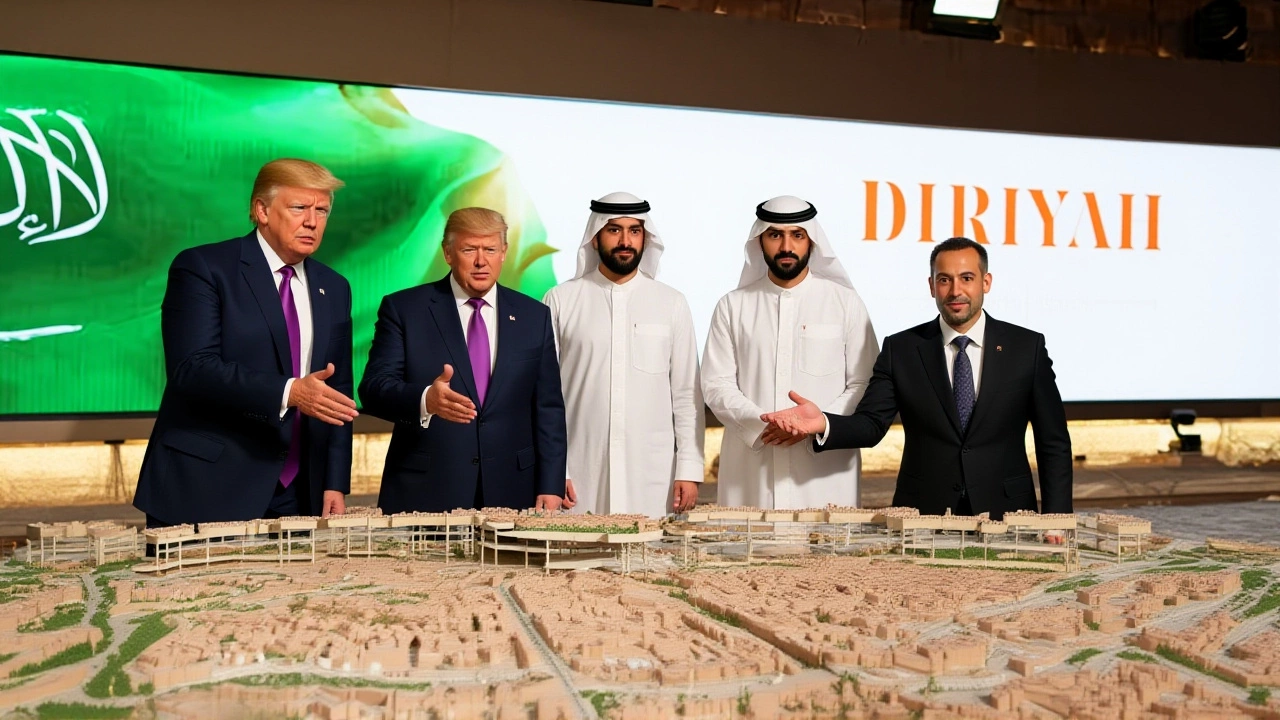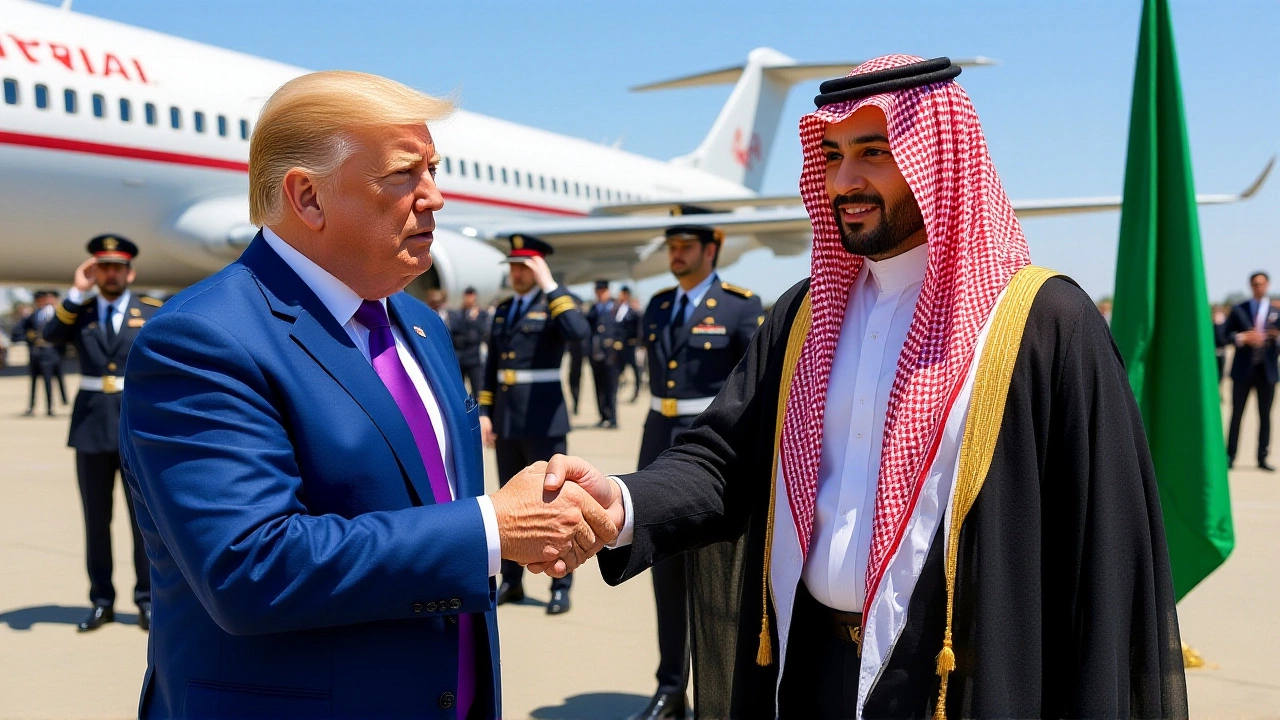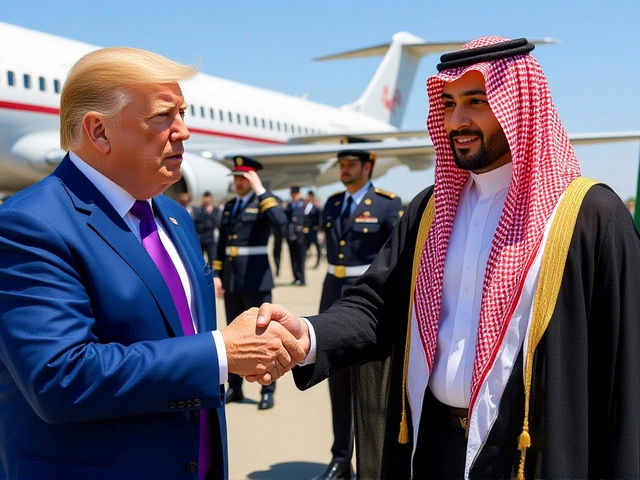When President Donald J. Trump signed the U.S.-Saudi Strategic Defense Agreement at the White House on November 18, 2025, he didn’t just seal a $1 trillion deal—he ignited a geopolitical firestorm. Behind the smiles and handshakes, Israeli officials had quietly but firmly told the Trump administration: no F-35s to Saudi Arabia without full diplomatic normalization with Israel. And that’s not a request. It’s a red line.
Why the F-35 Is a Dealbreaker
The Royal Saudi Air Force is set to receive the F-35A variant—stealthy, radar-evading, and armed with a 25mm cannon and AN/APG-81 AESA radar. Each jet costs roughly $77.9 million. For Israel, which has held the qualitative military edge in the region since 2008, this isn’t just another arms sale. It’s an existential threat. U.S. law, codified in the 2008 Foreign Relations Authorization Act, explicitly requires that Israel maintain its edge over all regional powers. Introducing F-35s to Saudi Arabia would shatter that balance overnight."We communicated to the Trump administration that the provision of F-35s to Saudi Arabia must be linked to Saudi normalization with Israel," said Israeli officials anonymously to Axios on November 15, 2025. "Providing the jets without diplomatic concessions would be a mistake and counterproductive." They didn’t mince words. This isn’t about politics. It’s about survival.
The $1 Trillion Gamble
The deal signed on November 18 wasn’t just about jets and tanks. It included nearly 300 American tanks, an 80-year defense partnership, and a staggering $1 trillion in Saudi investment pledges—up from $600 billion promised during Trump’s May 2025 visit to Riyadh. The U.S. Department of Defense, led by Secretary Pete Hegseth, framed it as an "America First" win: jobs in 50 states, defense industry growth, and burden-sharing funds to offset U.S. military costs in the Middle East.But here’s the twist: the Saudis didn’t get everything they wanted. While the agreement formalized Saudi Arabia’s status as the U.S.’s "primary strategic partner," it left the F-35s dangling—conditioned on a political move Riyadh hasn’t yet made. The Kingdom of Saudi Arabia’s Ministry of Defense, under Prince Khalid bin Salman, is ready to receive the jets. But the White House, under pressure from Jerusalem, is holding the keys.
Trump’s Timeline: "Fairly Shortly" After Gaza
President Trump has been clear: normalization must follow the Gaza conflict. "I think Saudi will be into the Accords fairly shortly," he told reporters aboard Air Force One on November 14, 2025. But "fairly shortly" is a vague phrase—especially when the Gaza conflict remains ongoing as of mid-November 2025, with no ceasefire in sight.Israel’s demand is simple: full diplomatic relations. Embassies. Mutual recognition. Not just economic ties or backchannel talks. And Saudi Arabia, despite its public overtures toward normalization since the 2020 Abraham Accords, has never formally extended recognition to Israel. The Kingdom has long insisted on a Palestinian state as a precondition—a stance that now clashes with Trump’s urgency.
"They want the jets without giving us anything," said one senior Israeli defense official. "That’s not how alliances work. We’ve stood by them for decades. Now they want the most advanced fighter in the world? Prove you’re serious."
Who’s Watching From Capitol Hill
The Senate Committee on Foreign Relations, chaired by Senator Jim Risch, and the House Committee on Foreign Affairs, led by Representative Michael McCaul, now hold the power to block the sale. Under the Arms Export Control Act of 1976, Congress has 30 days to review major arms deals. And they’re already bracing for pressure."We didn’t pass the 2008 law to let F-35s go to countries that won’t even shake hands with Israel," said McCaul in a recent interview. "This isn’t about politics. It’s about law. And it’s about keeping our most reliable ally safe."

The 80-Year Shadow
The U.S.-Saudi defense relationship stretches back to 1945, when President Franklin D. Roosevelt granted the U.S. Navy rights to build Dhahran Airfield. Since then, it’s been a marriage of oil, security, and strategic convenience. But this deal is different. It’s the first time the U.S. has considered transferring fifth-generation stealth fighters to Saudi Arabia—and the first time Israel has made it contingent on a political breakthrough.The U.S. Department of State, under Secretary Marco Rubio, is walking a tightrope. They need Saudi investment. They need regional stability. But they also need to honor commitments to Israel. The White House fact sheet calls the deal "a win for American jobs." But in Jerusalem, they’re calling it a gamble with national security.
What’s Next?
The next move isn’t in Washington or Riyadh. It’s in Gaza. Once the conflict ends—whenever that may be—Trump expects normalization talks to begin "fairly shortly." But will Saudi Arabia be willing to abandon its long-standing position on Palestinian statehood? Will Israel accept anything less than full embassies and public recognition? And will Congress let the F-35s fly without those conditions?One thing’s certain: the Middle East’s balance of power is shifting. And for the first time, the price of American jets is being set not by defense contractors, but by diplomats in Jerusalem.
Frequently Asked Questions
Why is Israel so concerned about Saudi Arabia getting F-35s?
Israel is the only country in the Middle East with F-35s, and U.S. law since 2008 mandates it maintain a qualitative military edge over all regional powers. Saudi Arabia acquiring the same stealth fighters would erase that advantage, potentially enabling new threats to Israeli airspace, intelligence assets, and nuclear deterrent capabilities. Israeli officials see this as an existential risk, not a political disagreement.
What exactly does "normalization" mean in this context?
Normalization means full diplomatic recognition: opening embassies in each other’s capitals, exchanging ambassadors, establishing direct government-to-government ties, and publicly acknowledging each other’s sovereignty. It goes beyond economic cooperation or security coordination. For Israel, it’s about legitimacy and security assurance—not just trade deals.
Can Congress stop the F-35 sale even if the White House approves it?
Yes. Under the Arms Export Control Act, Congress has 30 days after notification to pass a joint resolution of disapproval. While such resolutions are rarely sustained against presidential vetoes, both Senate Foreign Relations Chair Jim Risch and House Foreign Affairs Chair Michael McCaul have signaled strong opposition to the sale without normalization. A bipartisan coalition could force a public showdown.
Why did Saudi Arabia agree to this condition now?
Saudi Arabia is under pressure to diversify its economy and reduce dependence on oil. The $1 trillion in U.S. investment pledges—spanning tech, infrastructure, and energy—offer a lifeline. But Crown Prince Mohammed bin Salman also wants to position Saudi Arabia as a global power. Accepting normalization as a condition for F-35s may be a strategic trade-off: sacrifice a long-standing policy for military modernization and economic access to the U.S. market.
What happens if Saudi Arabia refuses to normalize with Israel?
The F-35 sale would likely be delayed indefinitely—or blocked entirely. The White House has signaled it’s willing to hold the jets as leverage. Saudi Arabia might still get the tanks and defense infrastructure deals, but losing the F-35s would be a major blow to its military ambitions. It could also damage its credibility with other global powers watching how the U.S. enforces its alliance conditions.
Is this deal connected to the Abraham Accords?
Yes. The Abraham Accords, signed in 2020, normalized relations between Israel and several Arab states, but Saudi Arabia stayed out—citing Palestinian statehood as a non-negotiable condition. This new push ties Saudi entry into the Accords directly to the F-35 sale, effectively making the jets the price of admission. It’s a new, high-stakes version of the same diplomacy.





